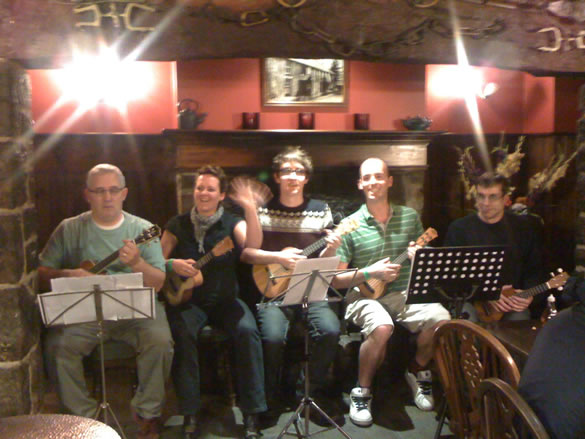According to an article I came across yesterday music might be what enables us to acquire language, and spoken language could be thought of as a special type of music.
When acquiring language babies first hear speech as “an intentional and often repetitive vocal performance” and they learn to hear and mimic its emotional and musical components, such as rhythm and pitch, before they start to learn and focus on meaning. Being able to distinguish the different sounds of speech seems to be an essential first step for the acquisition of language. Newborn babies are able to distinguish phonemes of any language they hear, but gradually focus on the language(s) they hear most often.
The researchers also found connections between how the brain processes consonants and how it recognize the timbre of different instruments – both processes that require rapid processing.
These findings lend support to the idea that singing came before speech, as discussed in The Singing Neanderthals: The Origins of Music, Language, Mind and Body by Steven Mithen.
I find that it helps to spend time listening to a language to tune your ears to its sounds, and to mimic those sounds, even though you don’t understand what they mean at first – a bit like a baby. If you spend plenty of time listening to a language, when you learn words and phrases it’s easier because they already sound familiar. I probably heard hundreds of hours of Taiwanese while I was in Taiwan, for example, so it sounds familiar, even though I don’t understand much. If I decided to learn more of it, I would find it easier than a language I haven’t heard so much.
Some would call this passive listening, but it isn’t passive – your brain is busily working away trying to make sense of all these strange sounds you’re filling it with and looking for patterns. You can’t learn a language simply by listening – conversational interactions with others are also needed – but I think listening is an important part of the learning process.
